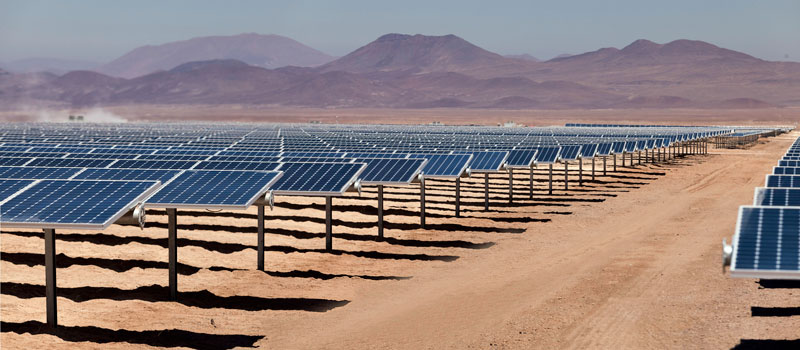Etrion Corporation reported that its total power production reached 8,086 MWh in the first quarter of 2018. This is a significant loss compared to the 49,922 MWh the Swiss headquartered IPP presented in the first quarter of 2017.
Revenues also dropped, from US$5.2 million to $2.9 million year-on-year (YoY) for the first quarter. Despite this, the company managed to improve its EBITDA from $57k to $658k YoY. Net loss also improved from $7.5 million in the first quarter of last year, to $3.8 million in the latest quarter.
“Cost cutting measures taken in Q4-17 have delivered significant savings in Q1-18 which, combined with a higher installed capacity compared to the same period last year, resulted in consolidated EBITDA,” says Marco A. Northland, CEO of Etrion.
The company, on the other hand, “deconsolidated” its Chilean unit Salvador for a one-time, non-cash extraordinary gain of $41 million last year. The operation, which was included in the financial results of the fourth of quarter of last year, marked the exiting of the company from the challenging Chilean market.
Chilean project gone wrong
In 2012, the Chilean PV market experienced tremendous growth as wholesale electricity prices were high and solar irradiation was excellent. Etrion’s PV installations were run under a merchant plant scheme, which meant that half the production was sold at a fixed rate, and the other half was sold on the spot market.
With foreign investment and developers flocking into the country, developing more solar PV than was sustainable under such market rules, spot market prices for solar PV at times of intense solar irradiation dropped to zero in the northern part of Chile, causing severe financing issues, not only for Etrion, but also many other power producers that came to Chile with high hopes.
The company’s Chilean portfolio turned from a promising asset, to a liability.
After Etrion completed a 70 MW plant and struggled to repay the debt accumulated for the project, the company announced that the remaining 99 MW in the planning phase would only move ahead with the actual development of the sites if PPA’s with Chile’s energy regulator could be brokered.
Some troublesome years with the existing project ended as Etrion managed to divest its Chilean assets. The IPP can now focus on asset generation in the more promising Japanese market.
Japan: Promising, but not easy
Touting 400 MW of projects at various stages of development, Etrion feels confident about the Japanese market and looks forward to expanding its project base.
The company states it is currently working on a 190 MW backlog in Japan, and raises optimism referring to its stable cash position, ensuring steady progress and growth, while another 200 MW are currently at an early stage of the pipeline.
It also said its 13.2 MW Komatsu solar project in western Japan will be completed by the end of the second quarter. Revenue from the operational Japanese plants, which currently total 44 MW, grew year-on-year from $2.5 million to $2.9 million.
“On the operational side, our plants are performing well above plan, demonstrating superior design, technology and operations despite facing a first quarter with one of the heaviest snowfalls in nearly 40 years that caused approximately $0.2 million of lower revenue,” the company stressed in its statement.
This content is protected by copyright and may not be reused. If you want to cooperate with us and would like to reuse some of our content, please contact: editors@pv-magazine.com.




By submitting this form you agree to pv magazine using your data for the purposes of publishing your comment.
Your personal data will only be disclosed or otherwise transmitted to third parties for the purposes of spam filtering or if this is necessary for technical maintenance of the website. Any other transfer to third parties will not take place unless this is justified on the basis of applicable data protection regulations or if pv magazine is legally obliged to do so.
You may revoke this consent at any time with effect for the future, in which case your personal data will be deleted immediately. Otherwise, your data will be deleted if pv magazine has processed your request or the purpose of data storage is fulfilled.
Further information on data privacy can be found in our Data Protection Policy.